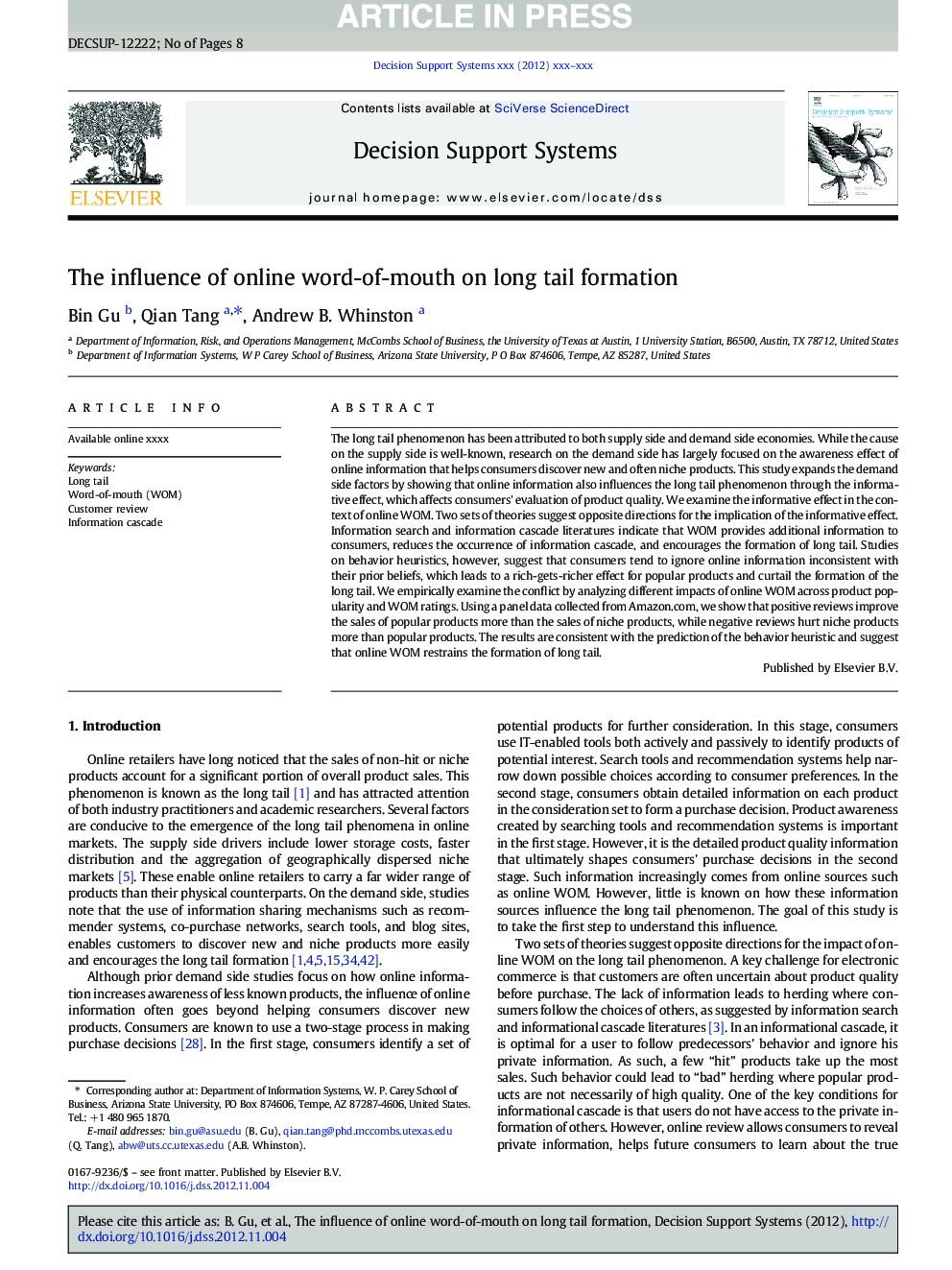| Article ID | Journal | Published Year | Pages | File Type |
|---|---|---|---|---|
| 6948637 | Decision Support Systems | 2013 | 8 Pages |
Abstract
The long tail phenomenon has been attributed to both supply side and demand side economies. While the cause on the supply side is well-known, research on the demand side has largely focused on the awareness effect of online information that helps consumers discover new and often niche products. This study expands the demand side factors by showing that online information also influences the long tail phenomenon through the informative effect, which affects consumers' evaluation of product quality. We examine the informative effect in the context of online WOM. Two sets of theories suggest opposite directions for the implication of the informative effect. Information search and information cascade literatures indicate that WOM provides additional information to consumers, reduces the occurrence of information cascade, and encourages the formation of long tail. Studies on behavior heuristics, however, suggest that consumers tend to ignore online information inconsistent with their prior beliefs, which leads to a rich-gets-richer effect for popular products and curtail the formation of the long tail. We empirically examine the conflict by analyzing different impacts of online WOM across product popularity and WOM ratings. Using a panel data collected from Amazon.com, we show that positive reviews improve the sales of popular products more than the sales of niche products, while negative reviews hurt niche products more than popular products. The results are consistent with the prediction of the behavior heuristic and suggest that online WOM restrains the formation of long tail.
Related Topics
Physical Sciences and Engineering
Computer Science
Information Systems
Authors
Bin Gu, Qian Tang, Andrew B. Whinston,
